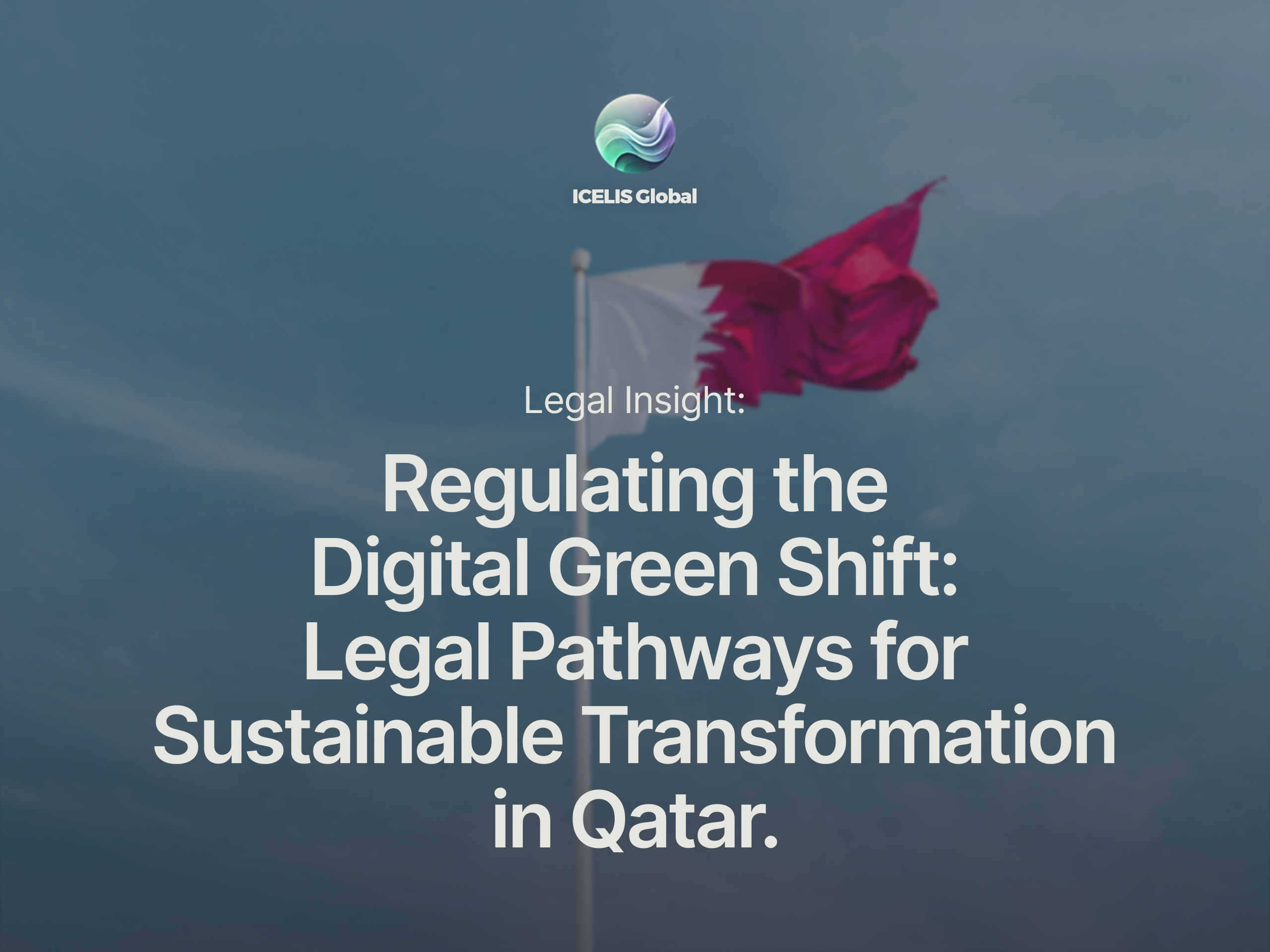Qatar is undergoing a bold evolution, one that aligns digital innovation with sustainable development. As the country embraces artificial intelligence, smart grids, and Internet of Things (IoT) applications to power a greener, more efficient economy, legal and regulatory frameworks must keep pace. However, its success depends on how well laws can enable, govern, and accelerate this shift. This transformation is goes beyond regular digital changes and borders more on the need to build a resilient and inclusive digital green economy powered by green technology.
Digital Infrastructure Meets Environmental Ambitions
Across sectors, from energy to water, transportation to agriculture, Qatar is investing in smart, green technology designed to optimize resource use and reduce environmental impact. Digital solutions such as AI-powered analytics, IoT-enabled monitoring systems, and machine learning for energy forecasting are already shaping how sustainability is practiced on the ground. These innovations are the building blocks of a thriving digital green economy, where real-time tracking and predictive maintenance support national climate goals.
However, for these tools to function effectively at scale, legal frameworks must support their deployment. This includes legislation around digital infrastructure standards, environmental data collection and sharing protocols, as well as public-private partnerships to fund and operate smart systems. Without regulatory alignment, fragmented systems and legal uncertainty can delay or derail the progress of the digital green economy.
Shaping Smart Legal Responses to a Green Digital Economy
The integration of digital technologies into environmental governance brings new legal considerations. Questions arise regarding data ownership, platform accountability, intellectual property of green tech algorithms, and the ethical use of AI in sustainability applications. As green technology becomes more embedded in critical infrastructure, the legal system must evolve to address both opportunities and risks.
To support a truly inclusive and scalable digital green economy, Qatar needs forward-looking legal instruments that not only regulate but also encourage innovation. These include streamlined licensing for digital climate solutions, incentives for the adoption of green technology, and regulatory frameworks that support experimentation such as legal sandboxes and expertly crafted regulatory sandboxes like the Qatar Central Bank Regulatory Sandbox.
Such steps can accelerate market transformation and ensure that digital progress supports climate resilience and social equity.
Integrating ESG, Tech and Compliance
Environmental, Social and Governance (ESG) frameworks are increasingly supported by green technology platforms, from automated reporting tools to blockchain systems that trace sustainable supply chains. But without harmonized legal standards and mandates, these tools may lack credibility and comparability, which are crucial in an era of global climate reporting.
To build trust in ESG data and integrate it fully into the digital green economy, Qatar needs national laws that define disclosure obligations, establish data governance norms, and enforce cybersecurity protections. Legal clarity will also help distinguish genuine sustainability leadership from greenwashing, ensuring that technology is a force for transparency and accountability.
The Road Ahead
As Qatar moves toward climate neutrality and economic diversification, legal innovation must accompany technological progress. Laws must be flexible enough to keep pace with rapid developments in green technology and yet firm enough to protect the public interest. This includes updating environmental legislation to reflect digital realities and empowering institutions to manage emerging risks and opportunities.
A sustainable future depends on the successful integration of digital tools and environmental governance. The digital green economy will not emerge on its own—it requires strategic legal guidance, collaboration across sectors, and a shared commitment to responsible innovation. By laying the right legal foundations today, Qatar will place itself in pole position to drive and develop a digitally enabled, environmentally sound tomorrow.
